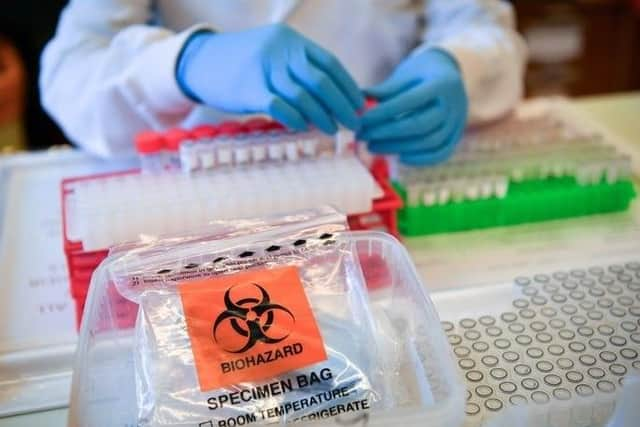A Sussex university is pioneering new method of early detection of coronavirus
and live on Freeview channel 276
Using a pinprick test, the development could predict infection before a standard test can diagnose the presence of the virus, as well as any new version of pathogenic coronaviruses in the future.
Using data which was made public from a hospital in Sao Paulo, Brazil, researchers found they were able to predict who had the virus based on full blood counts.
Advertisement
Hide AdAdvertisement
Hide AdPatients with coronavirus tended to have decreased levels of platelets and types of white blood cells. A simple equation was then devised using four parameters of the blood counts, which could be used in hospitals after validation.


The team behind the project, Modelling and Prediction Pandemics (MaPP), recently won first prize at the week-long international Coronahack, an event which brought together some of the brightest minds in biomedicine and AI to stimulate the prospect of new and novel ideas to combat Covid-19.
Since winning the competition, a paper has been written, submitted and accepted for publication in the International Immunopharmacology Journal in less than six weeks, time scale which is far less than similar pieces of research would usually take. The prize money and GPU will be used to continue the research and further develop the AI modelling to help screen during future waves of the pandemic in Gabon.
The team was made up of Dr Louise Mackenzie from the University of Brighton’s School of Pharmacy and Biomolecular Sciences, as well as researchers from the Universities of Oxford, Lincoln, Glasgow, Bristol, Sheffield and Bristol with support from investors hospitals and members of the public.
Advertisement
Hide AdAdvertisement
Hide AdDr Mackenzie said: “Working in such a focussed and productive way has been an extraordinary experience. It has been a privilege to see what can occur when a cross discipline multi-university group come together with one single purpose in mind. I hope this is the way we can work more in future.”


The research has received support from the University of Brighton’s Covid-19 Research Urgency Fund, which is helping to speed up research and enterprise activities related to the pandemic.
Research will continue to be conducted at the University of Brighton, with collaboration from the Universities of Oxford, Lincoln and Glasgow with new partners in Gabon (University of Science and Technology of Masuku).